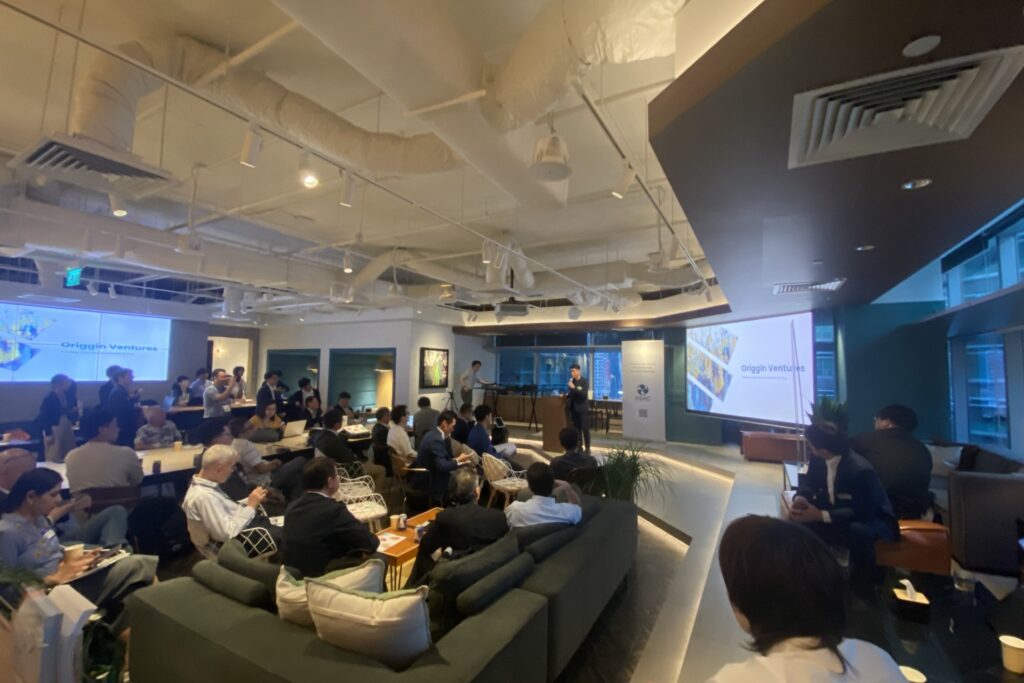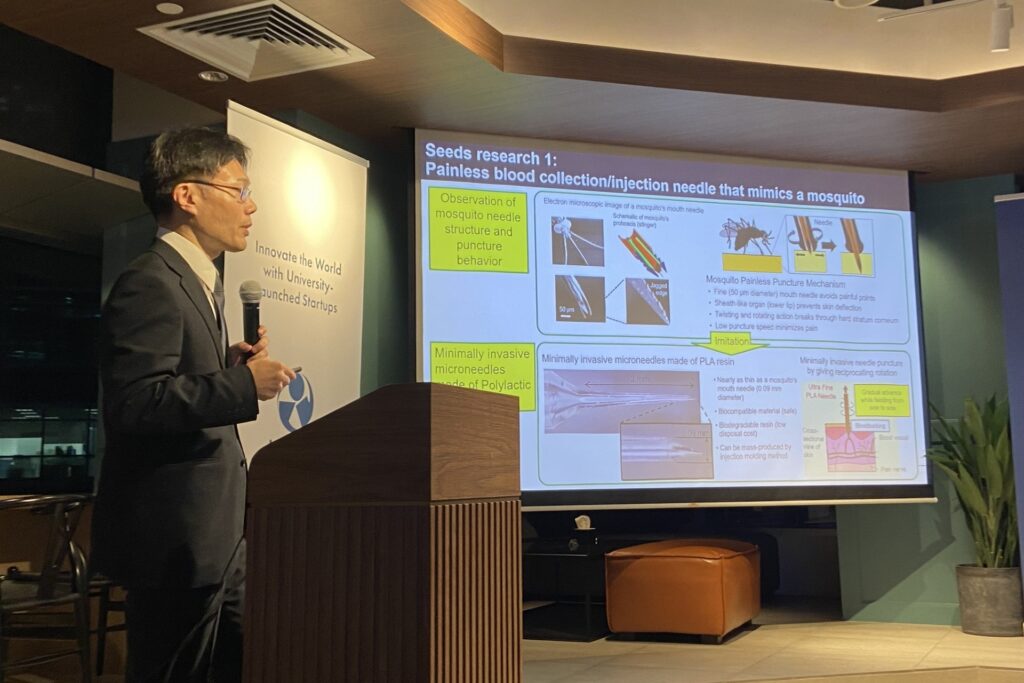In parallel with TechInnovation 2024, the Kansai Startup Academia Coalition (KSAC) hosted “Lab to Market: Exploring Kansai’s Top Research with KSAC” on October 28, offering Kansai’s top researchers a platform to showcase innovations born in Japan’s tech heartland.
The event aimed to demonstrate that deep tech from Kansai isn’t just ready for the local market but primed for international partnerships, addressing global needs with new solutions. Kansai’s technical expertise and research achievements were in focus, with Singapore—a major tech hub and melting pot for innovation—as the strategic backdrop for fostering these cross-border alliances.
Around 100 attendees, including Singaporean government officials, investors, innovation experts, and Japanese expats, gathered to watch presentations from five standout Kansai research teams.

Among them was professor Masato Suzuki from Kansai University, who showcased what may be the world’s thinnest hollow needle, inspired by the painless blood-drawing mechanism of mosquitoes. At just 0.09 millimeters in diameter and paired with artificial intelligence-powered vein detection, the needle offers new potential for automated, pain-free blood collection—a pioneering move in medical technology aiming for commercialization.

Yet, as with much of Japan’s deep tech, commercializing this research comes with challenges. In early talks with investors, concerns about limited safety data have emerged as a barrier to scaling up for broader applications. The response in Singapore echoed some of these reservations but also brought a fresh enthusiasm, especially from healthcare professionals willing to test innovative technologies despite the risks. Researchers from the National University of Singapore and Nanyang Technological University attended, sparking dynamic exchanges with the Kansai scientists.
KSAC’s initiative revealed the growing interest in Kansai’s tech potential beyond Japan, highlighted by feedback from a Singaporean investor who noted that the showcased technologies were unlike anything yet seen locally. This kind of cross-border exposure underscored the event’s significance, providing Kansai researchers and startups with opportunities to expand outside Japan’s borders.
The event also shone a light on Kansai’s promise to tackle global challenges with advanced technology. Building on this momentum, more Kansai companies and researchers are likely to explore international ventures, bringing Japan’s deep tech expertise to the world stage.
This article was published in partnership with the Kansai Startup Academia Coalition (KSAC). KrASIA was an event partner for Lab to Market: Exploring Kansai’s Top Research with KSAC.
